Find Help
More Items From Ergsy search
-
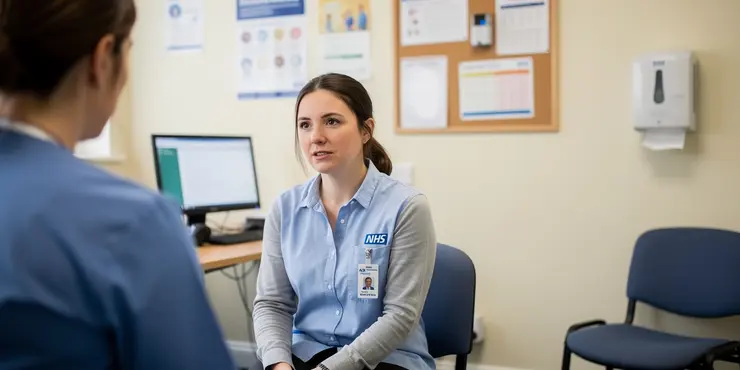
What is a learning disability?
Relevance: 100%
-
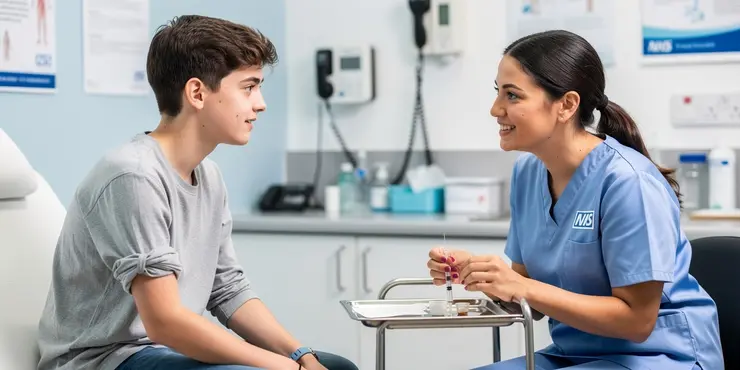
Flu vaccinations for people with a learning disability
Relevance: 88%
-
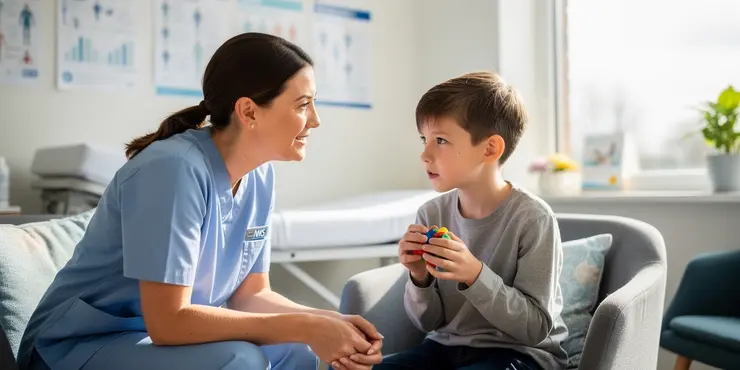
The NHS Long Term Plan for learning disability and autism
Relevance: 81%
-
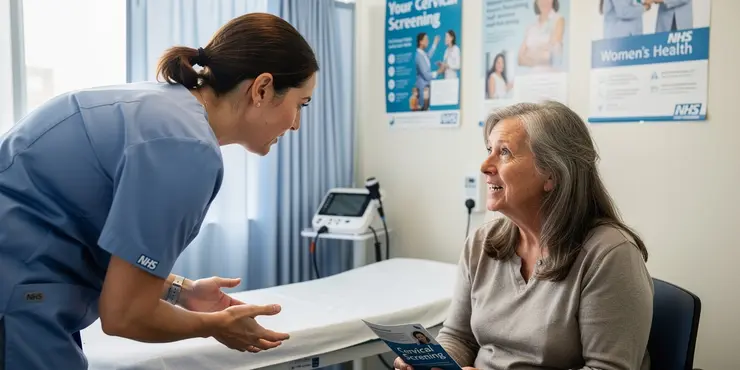
Accessing cervical screening with the right support for people with a learning disability
Relevance: 77%
-
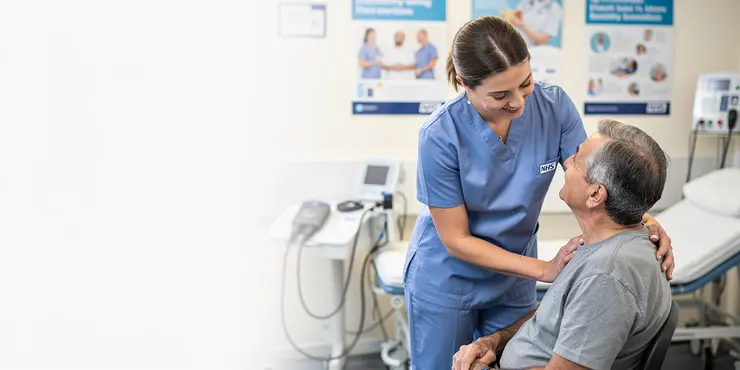
Use of reasonable adjustments to reduce health inequalities for people with a learning disability
Relevance: 73%
-
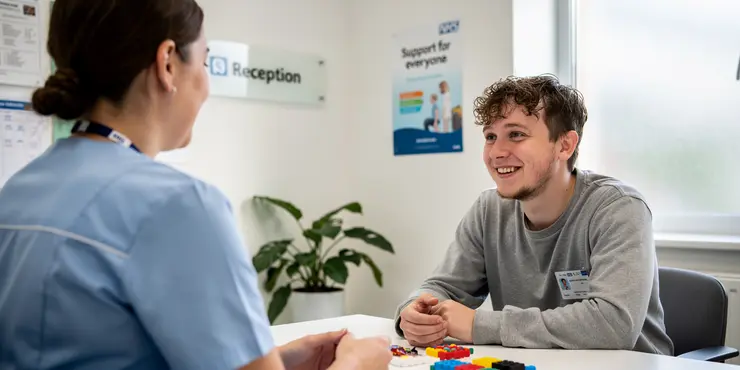
Transforming Care for people with Learning Disabilities and/ or Autism: Peter's Story
Relevance: 72%
-
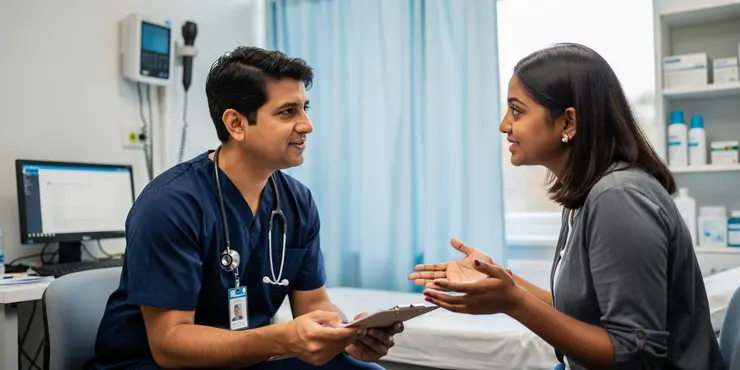
Harshi’s learning disability annual health check and health action plan
Relevance: 63%
-
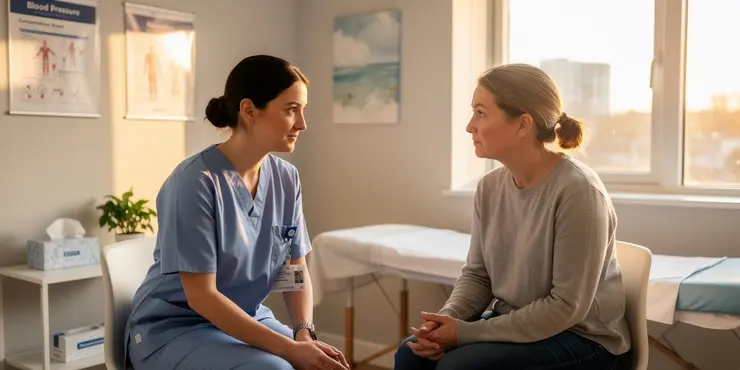
NHS-led Provider Collaboratives: improving mental health, learning disability and autism services
Relevance: 61%
-
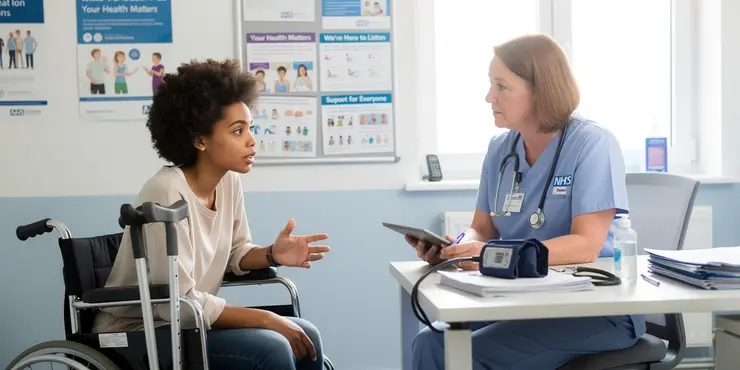
Are there grants specifically for individuals with disabilities?
Relevance: 50%
-
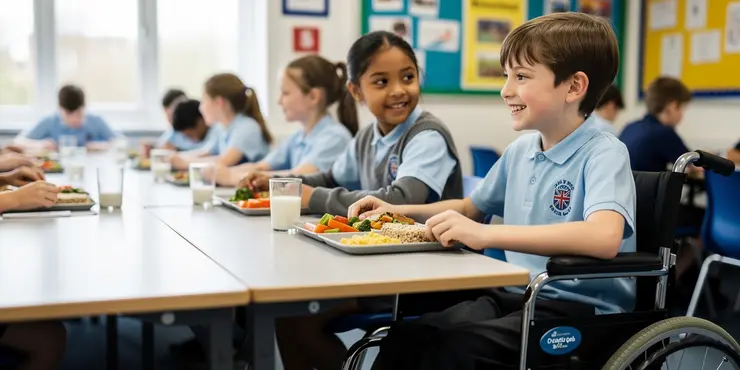
Can children with disabilities access school meals?
Relevance: 49%
-
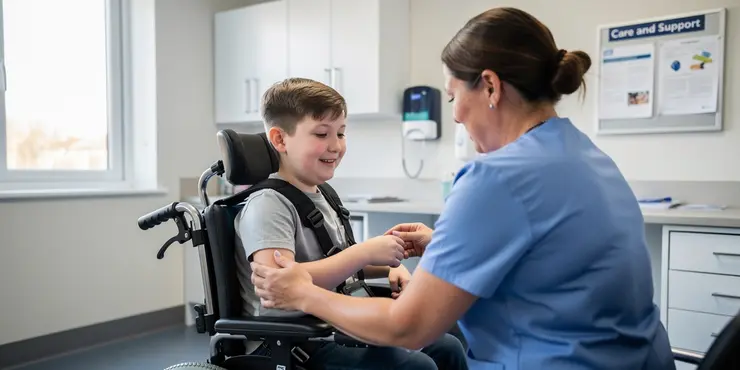
Profound intellectual and multiple disabilities | NHS
Relevance: 46%
-

Debate Intensifies Over Welfare Reforms Impacting Disabled Citizens
Relevance: 42%
-
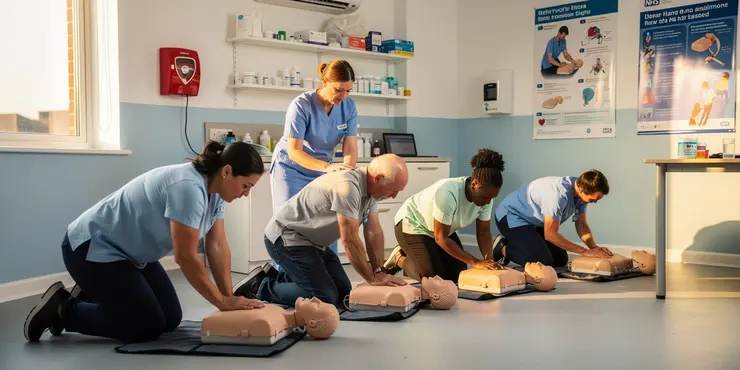
Where can I learn First Aid?
Relevance: 41%
-
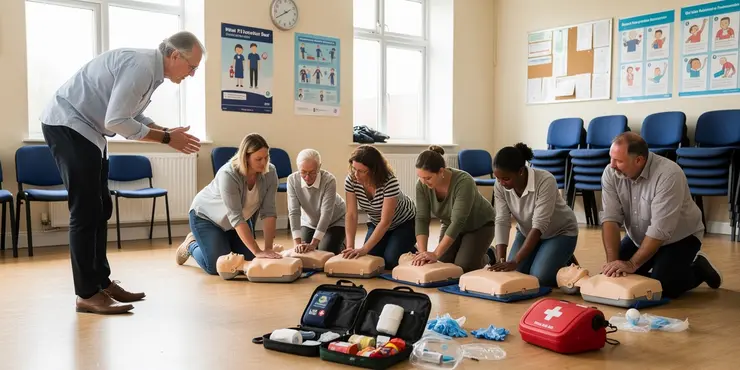
Can I learn first aid as a group?
Relevance: 40%
-
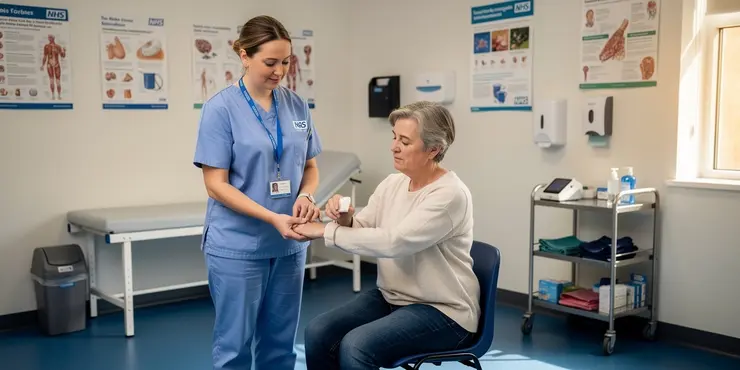
Are there free resources for learning first aid?
Relevance: 39%
-
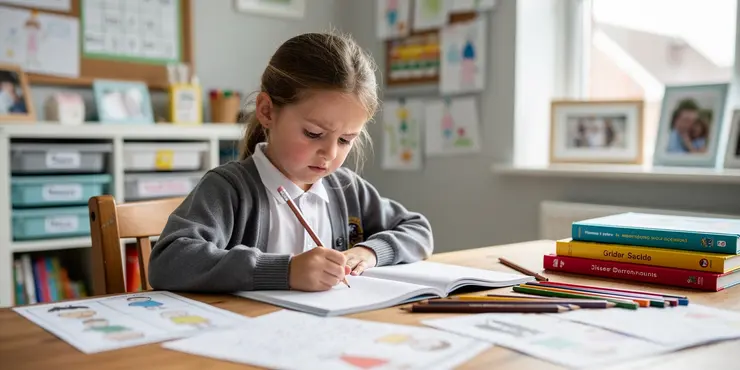
Dyslexia, Dyspraxia & Overlapping Learning Difficulties
Relevance: 39%
-
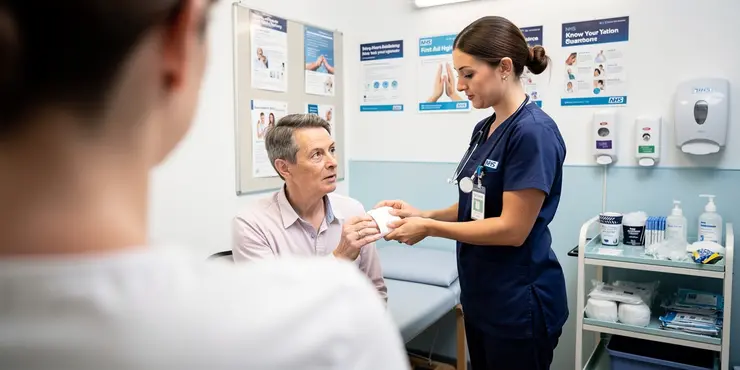
Where can I learn first aid online?
Relevance: 38%
-

Can learning a new skill be considered a hobby for older adults?
Relevance: 38%
-

What age is appropriate to start learning first aid?
Relevance: 38%
-
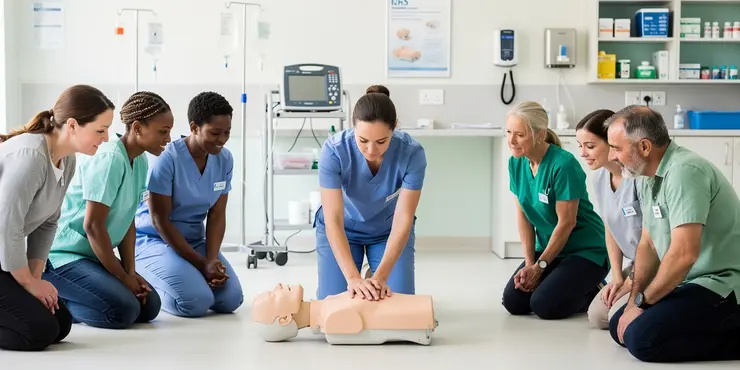
How important is it to learn CPR along with first aid?
Relevance: 37%
-
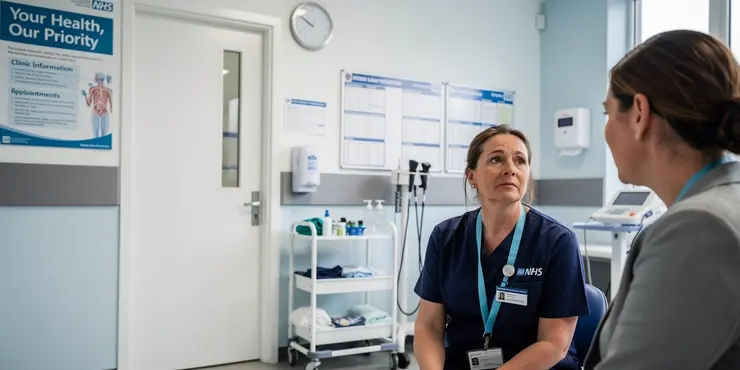
SLaM's Suicide Prevention, Learning and Support Strategy
Relevance: 35%
-
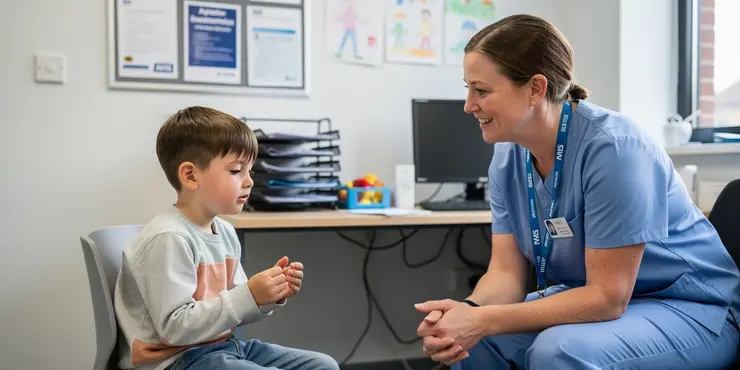
What are some common types of SEND?
Relevance: 34%
-
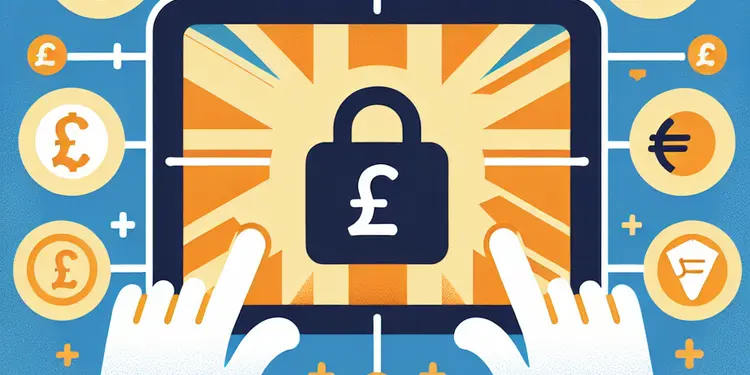
Are there online resources to learn more about fraud prevention?
Relevance: 32%
-
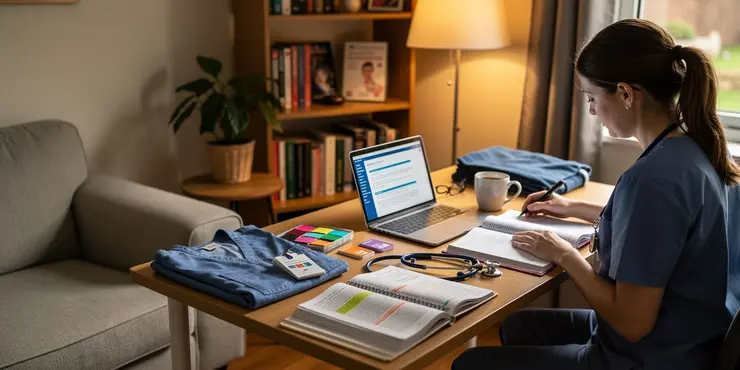
What funding options are available for nursing students in the UK?
Relevance: 28%
-
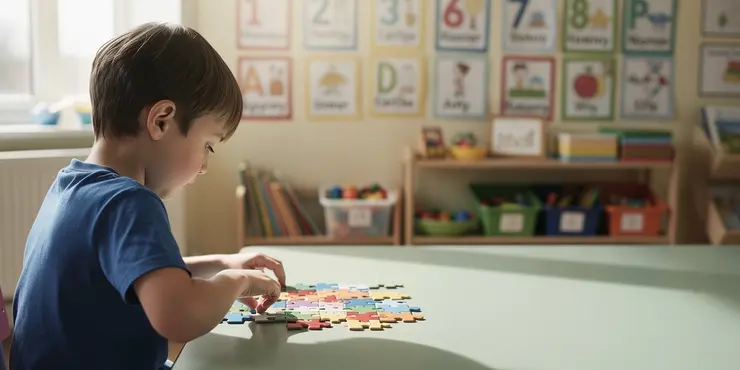
Who are SEND children?
Relevance: 27%
-
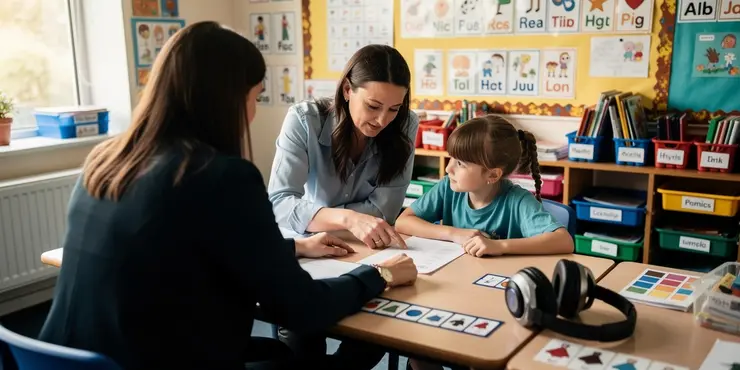
What role do teachers play in supporting SEND children?
Relevance: 27%
-
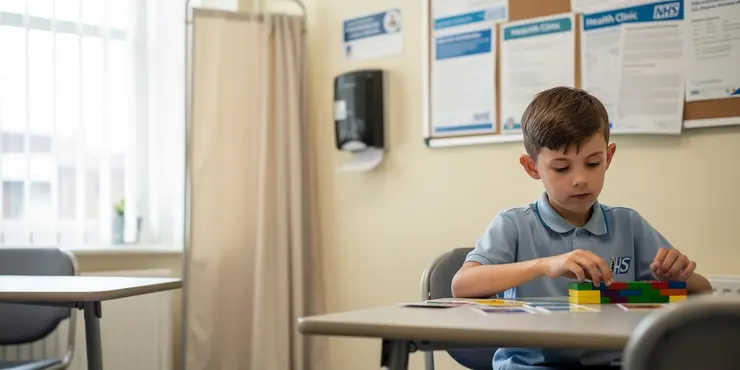
What are some common misconceptions about SEND?
Relevance: 26%
-

Who can live in a care home?
Relevance: 25%
-
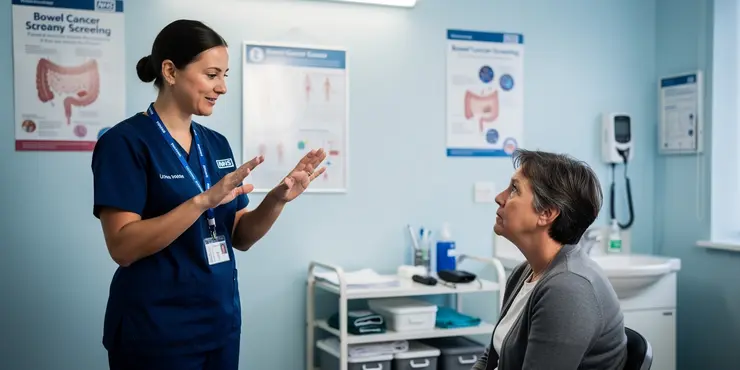
Learn about bowel cancer (British Sign Language version)
Relevance: 24%
-
Where can I learn about real Covid-19 variants?
Relevance: 24%
-

What if I have a disability that affects my ability to serve?
Relevance: 24%
-

How can I disable my neighbour's security camera?
Relevance: 24%
-
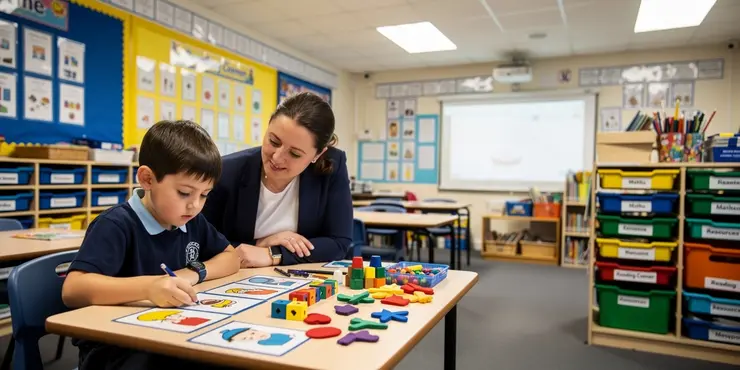
What are SEND children?
Relevance: 23%
-
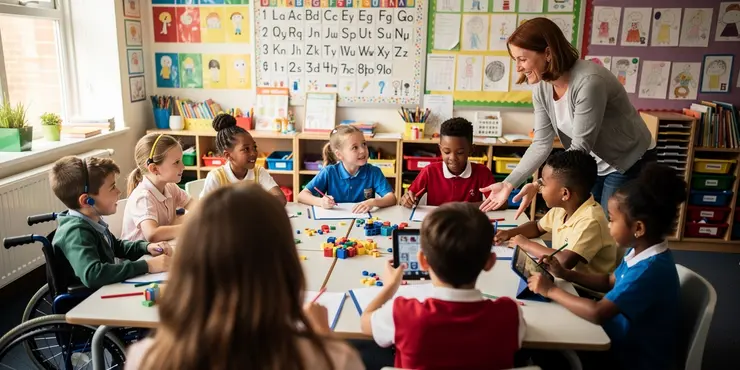
Do SEND children attend mainstream schools?
Relevance: 23%
-
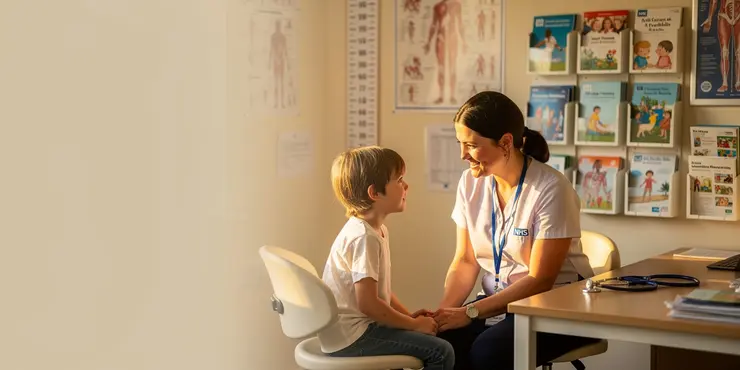
What does SEND stand for?
Relevance: 23%
-
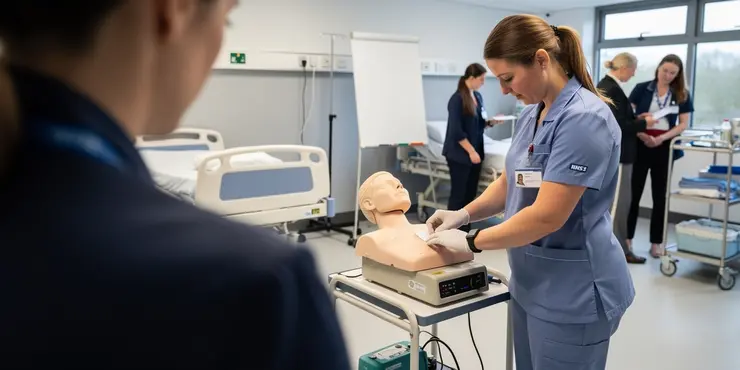
Can I attend open days to learn more about nursing programs in the UK?
Relevance: 22%
-
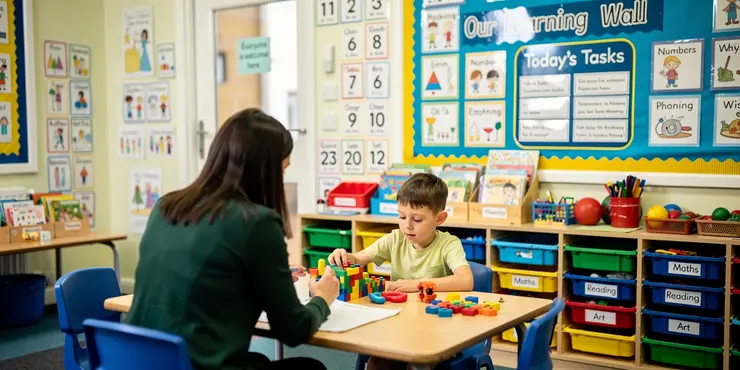
How can schools create an inclusive environment for SEND children?
Relevance: 22%
-
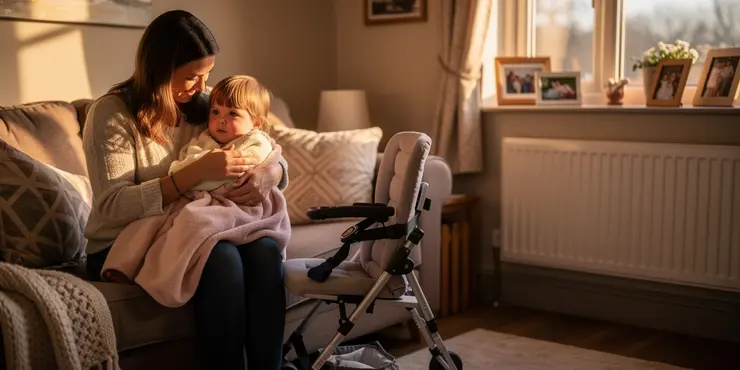
What support is available for families of individuals with PIMD?
Relevance: 22%
-
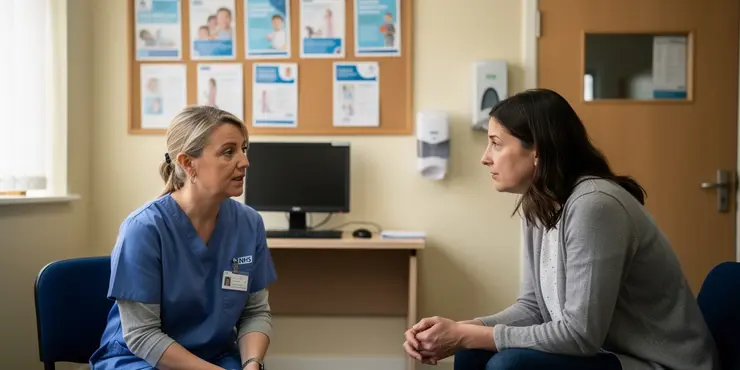
FASD Foetal alcohol
Relevance: 22%
-

What should I do if I have been using a baby pillow and learned it might be unsafe?
Relevance: 22%
What is a Learning Disability?
Understanding Learning Disabilities
A learning disability is a type of learning difficulty that affects the way a person learns new things throughout their life. People with learning disabilities may struggle with various aspects of education, work, and daily living. It is important to note that a learning disability is not an indicator of intelligence. Instead, it reflects the unique ways in which an individual processes information.
Types of Learning Disabilities
Learning disabilities can manifest in different ways. Some of the most common types include:
- Dyslexia: Affects reading and related language-based processing skills.
- Dyscalculia: Impacts an individual's ability to understand numbers and learn maths facts.
- Dysgraphia: Affects handwriting and fine motor skills.
- Attention Deficit Hyperactivity Disorder (ADHD): Though not a learning disability itself, ADHD can impact learning due to difficulties with focus and attention.
Identifying Learning Disabilities
Early identification and support can significantly enhance the educational experience of individuals with learning disabilities. Common signs include difficulty reading, writing, doing maths, problems following instructions, and struggling to organise tasks. Assessment by educational psychologists or specialised professionals is crucial for a formal diagnosis.
Supporting Individuals with Learning Disabilities
Support for individuals with learning disabilities can come in various forms, such as tailored educational programmes, use of assistive technology, and specific learning strategies. In the United Kingdom, schools are required to make reasonable adjustments to support the educational needs of students with learning disabilities. Additional support can also be sought through organisations like Mencap, which offer resources and advocacy services.
The Importance of Awareness and Inclusion
Raising awareness about learning disabilities is essential to foster an inclusive society where individuals with learning difficulties receive the understanding and support they need. By recognising the diverse ways people learn and providing appropriate resources, we can create an environment that enables everyone to achieve their full potential.
What is a Learning Disability?
Understanding Learning Disabilities
A learning disability makes it hard for someone to learn new things. This can affect school, work, and daily life. Learning disabilities don't mean someone isn't smart. They just show that people learn in different ways.
Types of Learning Disabilities
There are different types of learning disabilities. Some common ones are:
- Dyslexia: Makes reading and understanding words hard.
- Dyscalculia: Makes it hard to understand numbers and math.
- Dysgraphia: Makes writing and drawing difficult.
- Attention Deficit Hyperactivity Disorder (ADHD): Makes it hard to focus, but is not a learning disability by itself.
Identifying Learning Disabilities
Finding out if someone has a learning disability early is important. Signs include difficulty with reading, writing, math, following instructions, and organizing tasks. Experts like educational psychologists can help by giving a proper assessment.
Supporting Individuals with Learning Disabilities
People with learning disabilities can get help in different ways. This includes special learning programs, using helpful technology, and learning new ways to study. In the UK, schools must help students with learning disabilities by making adjustments. Organisations like Mencap also provide help and resources.
The Importance of Awareness and Inclusion
Knowing more about learning disabilities helps build a caring society. People with learning difficulties need understanding and support. When we understand that people learn differently, we can help everyone do their best.
Frequently Asked Questions
What is a learning disability?
A learning disability is a reduced intellectual ability and difficulty with everyday activities which affects someone for their whole life.
How are learning disabilities identified?
Learning disabilities are diagnosed by health professionals who assess learning difficulties, developmental history, and may use various tests to determine intellectual abilities.
What are some common types of learning disabilities?
Common types include dyslexia (reading difficulties), dyscalculia (math difficulties), and dysgraphia (writing difficulties).
Are learning disabilities hereditary?
There is evidence suggesting that learning disabilities can be hereditary, but they can also be caused by other factors such as prenatal issues or environmental factors.
What support is available for individuals with learning disabilities in the UK?
Support includes special education programs, Individual Education Plans (IEPs), assistive technologies, and services provided by organisations such as Mencap and the NHS.
Can a learning disability be cured?
There is no cure for learning disabilities, but individuals can learn strategies to manage their difficulties and lead successful, fulfilling lives.
What is the difference between a learning disability and a learning difficulty?
In the UK, 'learning disability' refers to profound and lasting cognitive impairments, while 'learning difficulty' is a broader term that can include milder challenges like dyslexia.
How does a learning disability affect daily life?
It can affect education, employment, communication, and daily activities, requiring tailored support and adjustments to help individuals live independently.
What role do schools play in supporting students with learning disabilities?
Schools provide tailored educational plans, specialist teaching, and access to resources to help students with learning disabilities thrive academically and socially.
How can parents help a child with a learning disability?
Parents can support by being patient, advocating for their child's needs, collaborating with schools and professionals, and providing opportunities for their child to develop skills.
Is there financial support for individuals with learning disabilities in the UK?
Yes, there are benefits such as Disability Living Allowance (DLA), Employment and Support Allowance (ESA), and Personal Independence Payment (PIP) that may be available.
Can adults have learning disabilities?
Yes, learning disabilities are lifelong conditions. Adults may continue to require support and accommodations in various aspects of life including work and independent living.
What is an Individual Education Plan (IEP)?
An IEP is a document that outlines specific learning goals for a student with disabilities and the support services required to achieve those goals.
Are people with learning disabilities considered disabled under UK law?
Yes, under the Equality Act 2010, people with learning disabilities are protected from discrimination and are entitled to reasonable adjustments in education and employment.
What organisations provide support for people with learning disabilities in the UK?
Organisations such as Mencap, Learning Disability England, and the National Autistic Society provide resources, advocacy, and support services.
What is a learning disability?
A learning disability makes it hard for someone to learn new things. It can affect how a person understands, remembers, and uses information.
People with learning disabilities might need extra help with schoolwork or daily tasks.
Tools like audiobooks and visual aids can help. It's important to be patient and give support.
A learning disability makes it hard for someone to learn and do everyday things. It is something they have all their life.
How do we know if someone has learning disabilities?
Some people find learning harder than others. We call this a learning disability. To find out if someone has a learning disability, we do some tests. These tests help us see what someone is good at and what is hard for them.
Here are some ways to find out if someone has a learning disability:
- Watch: Look at how the person learns and ask what they find tricky.
- Ask: Talk to teachers and parents to see what they notice.
- Test: Do special tests that show what the person finds easy or hard.
Tools and help:
- Use pictures: Pictures can help explain ideas.
- Break tasks into small steps: This makes learning easier.
- Tell someone: Talking to a teacher can help you get the support you need.
Doctors and other health experts find out if someone has learning disabilities. They check how the person learns and grows. They might use different tests to see how the person thinks and learns.
What are some common types of learning disabilities?
Here are some common types of learning disabilities:
- Dyslexia: This makes reading and spelling hard.
- Dysgraphia: This makes writing and drawing difficult.
- Dyscalculia: This makes math and numbers tricky.
- ADHD: This makes focusing and sitting still tough.
If you find learning hard, ask for help. You can use tools like text-to-speech software or audiobooks. A teacher or helper can also support you.
There are a few types of learning difficulties.
One is dyslexia. This makes reading hard.
Another is dyscalculia. This makes math hard.
The last one is dysgraphia. This makes writing hard.
Some tools can help. Audiobooks can help with reading. Using a calculator can help with math. Typing on a computer can help with writing.
Do learning problems run in families?
Some people are curious if learning problems can be passed down from parents to children. Let's try to understand this better in simple words.
Easy words: "Learning problems" means having trouble with reading, writing, or math.
Can it be in families? Yes, sometimes learning problems run in families. This means if a parent has a learning problem, their child might have it too. But not always!
What can help? There are tools that make learning easier:
- Use simple, clear words when studying.
- Take breaks to rest your mind.
- Ask for help from teachers and family when needed.
- Try using audiobooks or apps that read out loud.
Talk to a doctor or teacher if you have more questions.
Some studies say that learning problems can run in families. This means you might get them from your parents. Other things can cause learning problems too, like things that happen before you are born or things around you as you grow up.
What help can people with learning disabilities get in the UK?
People with learning disabilities can get help and support. This can make things easier for them. Here is some of the help that is available:
- Special Schools: These are schools that have teachers who know how to help children with learning disabilities.
- Support Groups: There are groups where people can meet and share their feelings and experiences.
- Healthcare Services: Doctors and nurses can give special care and advice to people with learning disabilities.
- Job Support: There are programs to help people find and keep a job.
- Technology Tools: Computers and apps can help make learning and everyday tasks easier.
If you or someone you know needs help, you can ask a teacher, doctor, or social worker for advice.
Help includes special teaching programs, Individual Learning Plans (IEPs), special tools to help, and services from groups like Mencap and the NHS.
Can a learning disability be fixed?
No, a learning disability cannot be fixed, but people can learn ways to help them do things better. They can practice and get support to make learning easier.
Here are some ways to get help:
- Work with a special teacher or tutor.
- Use tools like calculators or computers.
- Break tasks into small steps.
- Take breaks and rest when needed.
There is no way to completely fix learning disabilities. But people can learn ways to deal with them and live happy, successful lives.
How are a learning disability and a learning difficulty different?
A learning disability means someone learns things more slowly. They may need extra help every day.
A learning difficulty means someone can learn new things, but in a different way or with some help. They might find reading or math hard.
If you or someone you know needs help, using pictures, simple words, or asking a teacher can help understand better.
In the UK, a 'learning disability' means having big and long-lasting problems with thinking and understanding. A 'learning difficulty' is a bigger word that can also mean smaller problems, like dyslexia.
How can a learning disability change everyday life?
A learning disability can make some things harder to do, but it is okay! People might find reading, writing, or math tricky. They might need more time to do things or need help from others.
Here are some tips to help:
- Ask for help from teachers or friends when you need it.
- Use pictures and colors to remember things.
- Take breaks when you feel tired during your work.
- Use tools like audiobooks or apps that read text out loud.
- Try to stay organized with a schedule or planner.
Remember, everyone learns in different ways, and it's okay to ask for help!
This can make school, work, talking, and daily activities harder. People may need special help and changes to do things on their own.
How do schools help students who learn differently?
Schools help kids who learn differently in many ways. They can give extra lessons and use special tools, like computers or pictures, to make learning easier. Teachers can also give students more time to finish their work.
If you or someone you know needs help, you can ask a teacher or a parent for support. They can suggest using tools like audiobooks or learning apps to make studying fun and easier. Everyone learns at their own pace, and it’s okay to ask for help when you need it.
Schools create special plans and lessons to help kids with learning problems. They also give them tools and support to do well in class and make friends.
How can parents help a child who learns differently?
Parents can do a lot to help their child learn. Here are some simple ideas:
- Talk to the teacher: Speak with your child's teacher to understand what help your child needs at school.
- Read together: Spend time reading with your child every day. This helps them get better at reading.
- Be patient: Learning might be hard for your child. Be patient and give them time.
- Use tools: Use helpful tools like big letters, pictures, or audio books.
- Ask for help: Look for people who can help, like a tutor or a speech therapist.
Remember, every child learns in their own way. Support and encourage your child as they learn.
Parents can help by being patient. They should speak up for what their child needs. It is important to work with teachers and others who can help. Parents should also give their child chances to learn new things.
Can people with learning difficulties get money help in the UK?
If you have learning difficulties in the UK, you can get money help. Here are some of the ways:
- Benefits: Some benefits like Personal Independence Payment (PIP) can help people with learning difficulties.
- Help from the government: The government has programs to help with money for those who need it.
- Disability Living Allowance: This is money for people who need extra care.
If you want help to understand these options, talk to someone like a support worker or family member. They can help explain things to you. You can also use tools like pictures and videos to understand better.
Yes, there are benefits that you might get. These are called Disability Living Allowance (DLA), Employment and Support Allowance (ESA), and Personal Independence Payment (PIP).
Can grown-ups have learning problems?
Yes, grown-ups can have learning problems. This means some things like reading or math can be hard for them. Everyone is different, and it is okay to ask for help. There are tools and people who can help grown-ups learn better. You can use computers, apps, or special teachers to make learning easier. Remember, it's okay to need extra help or try things a different way. People are there to support you.
Yes, learning disabilities last for your whole life. Grown-ups might still need help at work and for living on their own.
What is an Individual Education Plan (IEP)?
An Individual Education Plan (IEP) is a plan to help a child learn better at school. It is made just for that child.
This plan says what the child needs to learn. It also says how teachers will help the child. Teachers, parents, and sometimes the child make the plan together.
The IEP helps the child with learning or other school needs. The plan is checked often to see how the child is doing.
If you want to know more or need help, you can ask a teacher or a family member to explain it. You can also use pictures or videos to learn more.
An IEP is a plan that helps a student with disabilities learn better. It shows what the student needs to learn and how teachers and helpers can support them.
Does UK law say people with learning disabilities are disabled?
Yes, UK law says people with learning disabilities are disabled.
If you need help understanding this, you can:
- Talk to someone you trust.
- Use pictures to help explain.
- Ask a teacher or a helper.
Yes! There is a law called the Equality Act 2010. This law says people with learning disabilities must be treated fairly. They should not be treated badly. Schools and jobs need to make changes to help them.
Who helps people with learning disabilities in the UK?
There are groups that help people with learning disabilities.
- Mencap: They help with information and support.
- Scope: They provide advice and support to families.
- National Autistic Society: They support people with autism and their families.
These organisations can give advice and tools to help you.
There are groups that can help, like Mencap, Learning Disability England, and the National Autistic Society. They have information, speak up for people, and offer support.
Useful Links
This website offers general information and is not a substitute for professional advice.
Always seek guidance from qualified professionals.
If you have any medical concerns or need urgent help, contact a healthcare professional or emergency services immediately.
Some of this content was generated with AI assistance. We’ve done our best to keep it accurate, helpful, and human-friendly.
- Ergsy carfully checks the information in the videos we provide here.
- Videos shown by Youtube after a video has completed, have NOT been reviewed by ERGSY.
- To view, click the arrow in centre of video.
- Most of the videos you find here will have subtitles and/or closed captions available.
- You may need to turn these on, and choose your preferred language.
- Go to the video you'd like to watch.
- If closed captions (CC) are available, settings will be visible on the bottom right of the video player.
- To turn on Captions, click settings .
- To turn off Captions, click settings again.
More Items From Ergsy search
-

What is a learning disability?
Relevance: 100%
-

Flu vaccinations for people with a learning disability
Relevance: 88%
-

The NHS Long Term Plan for learning disability and autism
Relevance: 81%
-

Accessing cervical screening with the right support for people with a learning disability
Relevance: 77%
-

Use of reasonable adjustments to reduce health inequalities for people with a learning disability
Relevance: 73%
-

Transforming Care for people with Learning Disabilities and/ or Autism: Peter's Story
Relevance: 72%
-

Harshi’s learning disability annual health check and health action plan
Relevance: 63%
-

NHS-led Provider Collaboratives: improving mental health, learning disability and autism services
Relevance: 61%
-

Are there grants specifically for individuals with disabilities?
Relevance: 50%
-

Can children with disabilities access school meals?
Relevance: 49%
-

Profound intellectual and multiple disabilities | NHS
Relevance: 46%
-

Debate Intensifies Over Welfare Reforms Impacting Disabled Citizens
Relevance: 42%
-

Where can I learn First Aid?
Relevance: 41%
-

Can I learn first aid as a group?
Relevance: 40%
-

Are there free resources for learning first aid?
Relevance: 39%
-

Dyslexia, Dyspraxia & Overlapping Learning Difficulties
Relevance: 39%
-

Where can I learn first aid online?
Relevance: 38%
-

Can learning a new skill be considered a hobby for older adults?
Relevance: 38%
-

What age is appropriate to start learning first aid?
Relevance: 38%
-

How important is it to learn CPR along with first aid?
Relevance: 37%
-

SLaM's Suicide Prevention, Learning and Support Strategy
Relevance: 35%
-

What are some common types of SEND?
Relevance: 34%
-

Are there online resources to learn more about fraud prevention?
Relevance: 32%
-

What funding options are available for nursing students in the UK?
Relevance: 28%
-

Who are SEND children?
Relevance: 27%
-

What role do teachers play in supporting SEND children?
Relevance: 27%
-

What are some common misconceptions about SEND?
Relevance: 26%
-

Who can live in a care home?
Relevance: 25%
-

Learn about bowel cancer (British Sign Language version)
Relevance: 24%
-
Where can I learn about real Covid-19 variants?
Relevance: 24%
-

What if I have a disability that affects my ability to serve?
Relevance: 24%
-

How can I disable my neighbour's security camera?
Relevance: 24%
-

What are SEND children?
Relevance: 23%
-

Do SEND children attend mainstream schools?
Relevance: 23%
-

What does SEND stand for?
Relevance: 23%
-

Can I attend open days to learn more about nursing programs in the UK?
Relevance: 22%
-

How can schools create an inclusive environment for SEND children?
Relevance: 22%
-

What support is available for families of individuals with PIMD?
Relevance: 22%
-

FASD Foetal alcohol
Relevance: 22%
-

What should I do if I have been using a baby pillow and learned it might be unsafe?
Relevance: 22%


